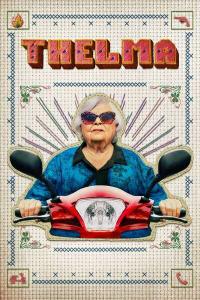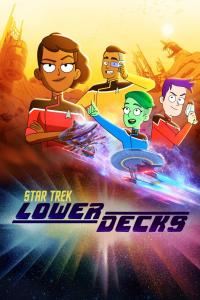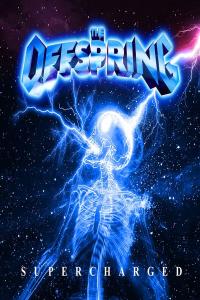| HB11 | ||
|---|---|---|

| Hey guys, here's some info about common files that you can download from the internet, and a little bit about using these files for their intended purposes. If you're stuck on what exactly a file is or how to open it maybe your answer lies ahead. If you dont' find your answer here, then please post in the "Forum". So without further adieu lets get the show on the road! Compression Files .rar .zip .ace .r01 .001 These extensions are quite common and mean that your file(s) are compressed into an "archive". This is just a way of making the files more compact and easier to download. To open any of those archives listed above you can use WinRAR (Make sure you have the latest version) or PowerArchiver. If those progams aren't working for you and you have a .zip file you can try WinZip . If the two first mentioned programs aren't working for you and you have a .ace or .001 file you can try Winace. .cbr .cbz These are usually comic books in an archive format. a .cbr file is actually the same thing as a .rar file and a .cbz file is the same as a .zip file. However, often when opening them with WinRAR or WinZip it will disorder your pages. To display these archives properly it's often best to use CDisplay. Multimedia Files .avi .mpg. .mpeg .divx .xvid .wmv These files are usually movies or TVshows, or a host of other types of media. They can be viewed using various media players, but I suggest using Zoomplayer, BSPlayer, VLC media player or Windows Media Player. Also, you'll need to make sure you have the right codecs to play each individual file. Codecs are a tricky business sometimes so to help you out with your file and what exact codecs it needs try using GSpot. It tells you what codecs you need. Then just look on the net to find them, below are some common codecs and their download links for quick reference: ffdshow (Recommended! (plays many formats: XviD, DivX, 3ivX, mpeg-4)) XviD codec DivX codec ac3filter (for AC3 soundtracks, aka "5.1" Ogg media codec (for .OGM files) .mov These are QuickTime files. Hopefully you won't have to open these as I hate quicktime, but if you do you can get it here. There are however alternatives to the original program, Check out QuickTime Alternative. .ra .rm .ram These are RealPlayer files. RealPlayer IMO is the devils work. It installs lord knows what on your system and never really goes away when you want to uninstall it. Still if you insists you can get the player here. There are however alternatives to the original program, check out Real Alternative. vcd/svcd These can be a pain on some peoples setups, but more so, on your stand-alone DVD player. For all your vcd needs check out https://www.videohelp.com These guys know their stuff, and can help you with all kinds of media related questions. .mp3 .mp2 Usually music files. Play them with WinAmp. .ogm .ogg Ogg Vorbis media files. You can find out more about them and download applications here. This filetype is another music file format, but can be used for various media. You will probably want to download the DirectShow Ogg filter to play back OGM files. Any new version of WinAmp will also do. CD Image Files .bin and .cue These are your standard images of a CD, and are used quite alot these days. To open them you have a couple options. You can burn them using Nero or Alcohol 120%, but this proves to be soooooooo problematic for a lot of people. You should also consult this tutorial for burning images with various software programs You can also use Daemon Tools, which lets you mount the image to a "virtual cd-rom", so basically it tricks your computer into thinking that you have another cd-rom and that you're putting a cd with your image file on it into this virtual cd-rom, it's great cuz you'll never make a bad cd again, Alcohol 120% also sports a virtual cd-rom feature. Finally, if you're still struggling to access the files contained within any given image file you can use CDMage to extract the files and then burn them, or just access them from your hard drive. You can also use VCDGear to extract the mpeg contents of a SVCD or VCD image file such as bin/cue. .iso Another type of image file that follows similar rules as .bin and .cue, only you extract or create them using WinISO or ISOBuster. Sometimes converting a problematic .bin and .cue file to an .iso can help you burn it to a cd. .ccd .img .sub All these files go together and are in the CloneCD format. CloneCD is like most other CD-Burning programs, see the .bin and .cue section if you're having problems with these files. Other Files .txt .doc These are text files. .txt files can be opened with notepad or watever you default text editor happens to be, and .doc are opened with Microsoft Word. .nfo These contain information about the file you just downloaded, and it's HIGHLY recommended that you read these! They are plain text files, often with ascii-art. You can open them with Notepad, Wordpad, DAMN NFO Viewer or UltraEdit. Opened with Adobe Acrobat Reader. .epub The EPUB file format (short for electronic publication) is an e-book format with the extension .epub. You can download EPUB files and read them on your smartphone, tablet, e-reader, or computer. This freely available e-book standard supports more hardware e-book readers than any other file format. EPUB files can also be opened on a computer with several free programs, such as Calibre, Adobe Digital Editions, iBooks, EPUB File Reader, Stanza Desktop, Okular, and Sumatra PDF .mobi A file with the MOBI file extension is a Mobipocket eBook file. They're used for storing digital books and are designed specifically for mobile devices with low bandwidth.MOBI files support things like bookmarking, JavaScript, frames, and adding notes and corrections. Some notable free programs that can open MOBI files include Calibre, Stanza Desktop, Sumatra PDF, Mobi File Reader, FBReader, Okular, and Mobipocket Reader. .jpg .gif .tga .psd Basic image files. These files generally contain pictures, and can be opened with Adobe Photoshop or whatever your default image viewer is. .sfv Checks to make sure that your multi-volume archives are complete. This just lets you know if you've downloaded something complete or not. (This is not really an issue when DL:ing via torrent.) You can open/activate these files with SFVChecker or hkSFV for example. .par This is a parity file, and is often used when downloading from newsgroups. These files can fill in gaps when you're downloading a multi-volume archive and get corrupted or missing parts. Open them with QuickPar. Good Luck Last edited by HB11 on 2018-09-15 17:20:44 | |
Like 2 | ||
| Post liked by - Prom3th3uS | ||












































